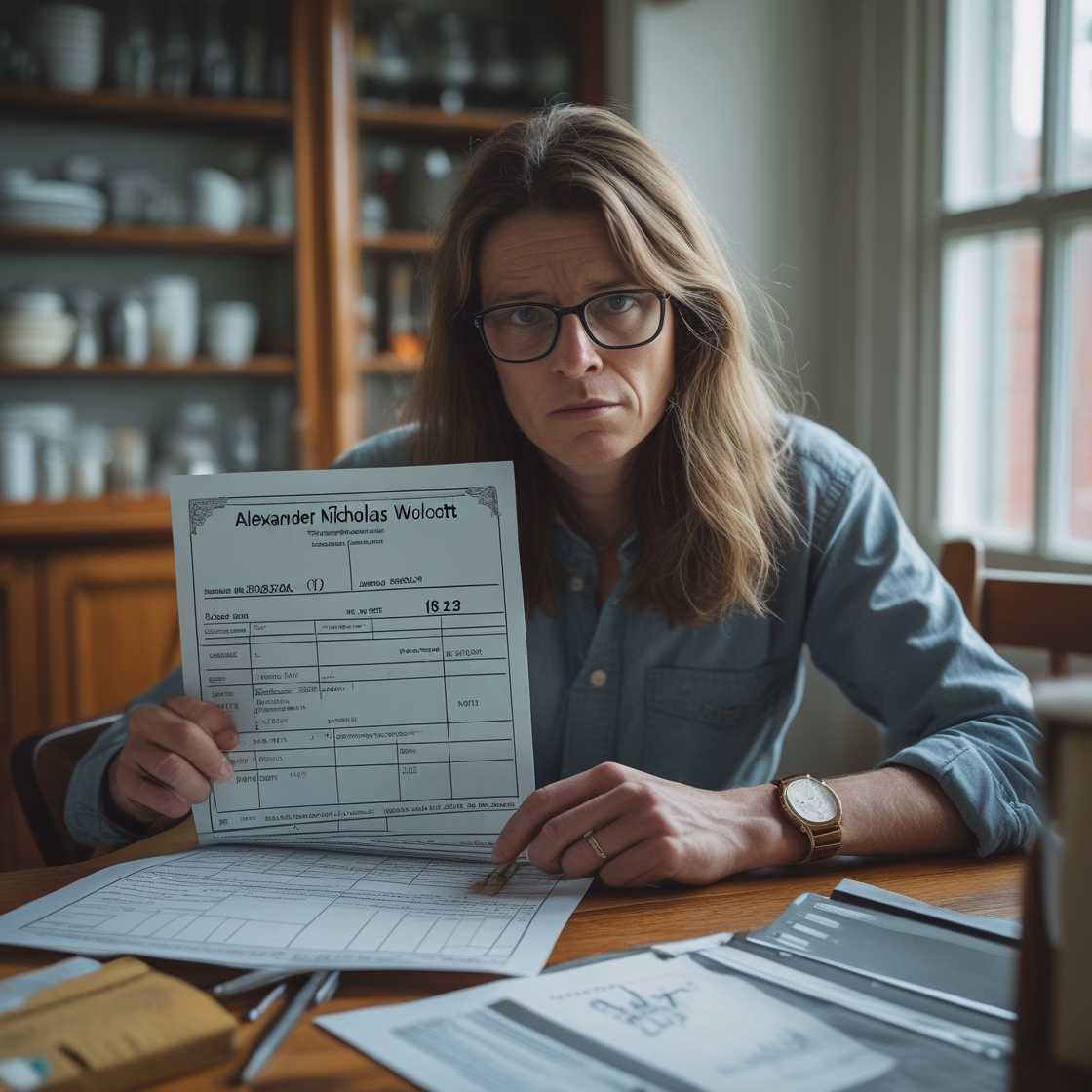When Clara stumbled across a thin sheet of paper tucked deep in the documents folder—a birth certificate—her breath caught. Neatly printed in black and white: Alexander Nicholas Wolcott, age 12.
She did the math. The date matched that year—when Edward started working late, and Daniel stopped tracking his height on the doorframe. Sixteen had been his last mark. After that, the house grew tense, silent. Daniel stayed out all hours, came home only to raid the fridge and crash. Edward kept quiet, detached. And Clara? She kept cooking Sunday roasts, kept smiling, but inside, she was unraveling.
She didn’t confront Edward. Not yet. Instead, she called Victor—an old friend and local constable—and asked if he could find an address from the boy’s information. No explanations.
The location led her to the edge of town, to a weathered, sagging house that looked nearly forgotten. She knocked. A thin boy with bleached hair and sharp eyes opened the door. He wore a faded Mickey Mouse T-shirt—Clara remembered buying one just like it for Daniel, years ago. Daniel had rolled his eyes and called it “kid stuff.”
“Mum’s not here,” the boy snapped. “Gran’s in hospital. I’m fine.”
Clara asked about his father.
“He doesn’t live here,” the boy muttered. “Don’t tell him I’m alone, okay?”
That was enough. She knew. This was Edward’s son.
“Pack your things,” she said calmly. “You’re coming with me.”
In the car, the boy told her everything—how his mother had died, how his grandmother had fallen ill, how his father only visited now and then.
When they arrived home, Clara led him straight to Edward’s study.
“Your father asked me to bring you back,” she told him.
The boy’s eyes lit up. “Really?”
“Really.”
When Edward walked through the door that evening, Clara took him out into the garden and laid it bare. He stammered—It was just once, I didn’t know, she never told me—but Clara didn’t flinch.
“Your son lives with us now,” she said. “You’ll sleep in the sitting room.”
The first weeks were tense. The boy moved like a ghost, afraid to ask for anything, barely speaking above a whisper. Then, one night, Daniel came home.
He saw the boy and raised a brow. “Who’s this?”
“Your brother,” Clara said.
Daniel looked like he might argue. But then he saw the way the boy shrank back, his hands clenched tight.
“Come on,” Daniel said. “We’ll find you a camp bed.”
After that, Daniel kept coming back. He took his brother fishing, taught him to ride a scooter, even brought him his old video games. For the first time in years, Clara saw something bright in Daniel’s eyes—something like joy.
In August, the boy’s grandmother passed away.
Edward suggested sending him to a children’s home.
Clara didn’t hesitate.
“You gave him your body,” she snapped. “You won’t take his future.”
